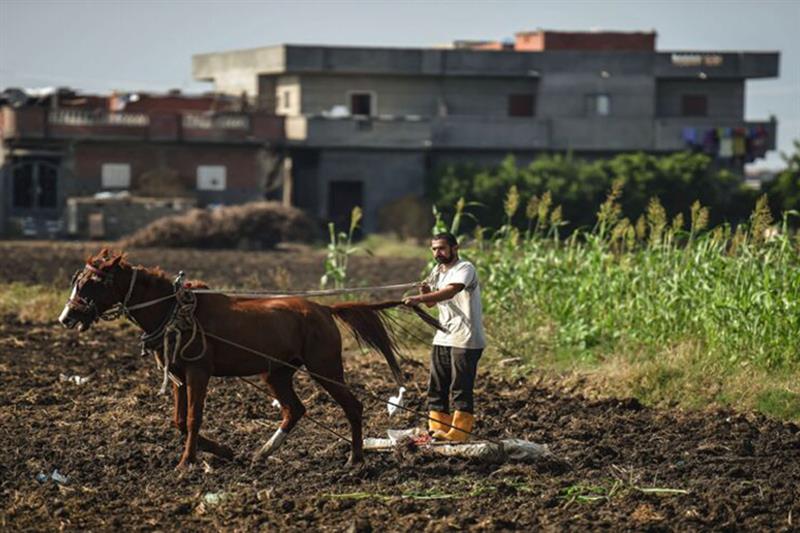Fertilizer supply problems – Egypt – Al-Ahram Weekly
Some 22 million tonnes of nitrogen fertilizers are produced each year in Egypt
A shortage of fertilizers has hit the Egyptian market in recent weeks, leading some farmers to resort to the black market to acquire what they need for their land and pushing up prices.
According to the Ministry of Agriculture and Land Reclamation, the higher prices of subsidized fertilizers in Egypt are mainly due to the global increase in the prices of natural gas and agricultural supplies.
Fertilizer prices sold to agents and distributors this month were LE 8,800 per tonne of urea and LE 8,600 per tonne of nitrates. By the time they reach the farmer, prices can reach around LE 10,000 per tonne.
Fertilizer companies are required to supply 55 percent of their production to the Ministry of Agriculture for sale at the subsidized price of LE 4,800 per tonne. Ten percent can be sold at free market prices and the remaining 35 percent can be exported.
World fertilizer prices are around LE 14,000 per tonne.
To solve the problem, the government decided to tie the issuance of export licenses to a commitment by the fertilizer companies to supply the 55 percent of their production for which they are subcontracted to the Ministry of Agriculture.
The ministry said on Sunday that all types of fertilizer are now available in the stores of agricultural cooperatives, and a hotline has been set up to receive complaints if farmers encounter difficulties.
According to a press release, fertilizers are distributed through inspection committees to those who cultivate the land, and not just own it, to ensure that the subsidized fertilizers get to the right beneficiaries.
The ministry said shipments are monitored from the time they leave factories until they reach agricultural cooperatives.
Khaled Abul-Makarem, head of the Chemical Industries Export Council of the Federation of Egyptian Industries, said fertilizer prices are expected to continue to rise in the coming months due to rising world prices.
“The current price is low compared to the world prices of fertilizers,” he said.
He added that recent increases in subsidized fertilizer prices were the result of unprecedented increases in international prices due to the natural gas crisis in Europe and China.
In October last year, the government decided to increase the price of natural gas for fertilizer, steel and petrochemical plants from $ 4.5 to $ 5.75 per million British thermal units. (mBtu) due to the global rise in gas prices.
There were also increases in the cost of raw materials and higher operating costs, both of which affected the price of the end product.
Abul-Makarem said the cabinet’s decision to prevent the export of fertilizer until 55 percent of production had been supplied to agricultural cooperatives at the subsidized price had encouraged factories to increase production by about 15 percent in order to benefit from the export share, especially given the currently high world prices.
He said the available amounts of natural gas and raw materials would determine any increase in production, which could vary from plant to plant. The factories’ current production capacity is estimated at around 22 million tonnes of nitrogen fertilizer, which covers domestic consumption even after the expansion of agricultural land by around 20 percent.
Data from the Export Council for Chemical and Fertilizer Industries revealed that the sector’s exports took first place in the total Egyptian export volume in 2021 to register a growth of 43%.
According to the data, exports amounted to $ 6.6 billion, compared to $ 4.165 billion for the same period in 2020.
EU countries accounted for the largest share with 29 percent of the total. Asian countries come in second, followed by Arab countries. Chemical exports account for about 22 percent of Egypt’s non-oil exports.
* A print version of this article appears in the January 13, 2022 edition of Al-Ahram Weekly.
Short link:


Comments are closed.